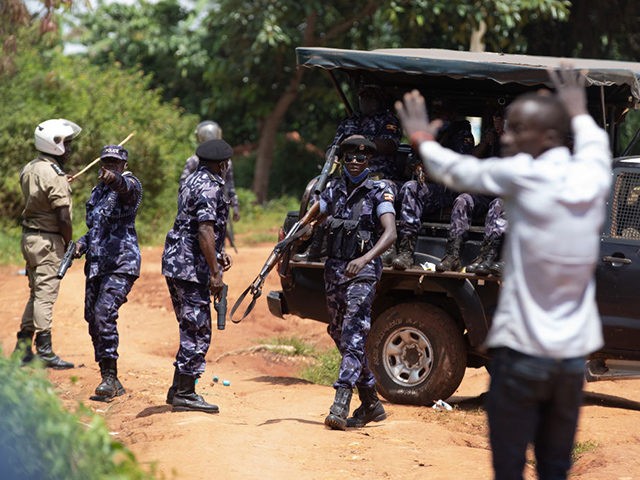The government of Uganda is demanding Google close 14 YouTube channels run by members of their political opposition, African outlets revealed Tuesday.
Kampala claims the channels are prompting violence after a wave of deadly protests occurred throughout the past month. The protests turned deadly because Ugandan police opened fire into crowds, on one occasion killing 50 people.
Kenya’s Daily Nation reported Tuesday that, in a letter from the Uganda Communications Commission (UCC), the government asked Google to take down popular YouTube channels on the grounds they were used to mobilize the recent riots that have resulted in at least 50 deaths, caused by police, and hundreds of injuries.
“[They contain] extremist or anarchic messages, including messages likely to incite violence against sections of the public on account of their tribes and political opinions … [and] may compromise national security and cause economic sabotage,” the letter reportedly read.
Some of the mentioned channels include TMO Online, Lumbuye Fred, Trending Channel UG, Uganda Yaffe, Uganda News Updates, Ghetto TV, Busesa Media Updates, and Uganda Empya, all of whom are accused of sharing content in violation of the Uganda Communications Act of 2013 and other specific regulations.
“Wherefore as the regulator of the communications sector in Uganda and in accordance with Section 5 (1) (b), (j), (x), 6 and 45 of the Uganda Communications Act 2013, the commission hereby implores Google to block access to the following YouTube accounts,” the letter stated.
The letter goes on to demand that Google “immediately stop aiding and abetting” those who violate Ugandan laws through its YouTube platform and conduct a thorough review of all content that may violate such laws.
“[We ask you] to review and revise YouTube operations to ensure that it is not used to circumvent the legal and regulatory requirements of the Republic of Uganda,” the letter concluded.
The move comes days after the government ordered all the country’s journalists to register with the Ugandan Media Council should they wish to continue covering political events, a move U.S. representatives in the country criticized.
“Journalists safeguard democracy by investigating, observing, and sharing information, sometimes overcoming great challenges to do so,” wrote the U.S. Mission in Uganda on Twitter. “The U.S. recognizes the work of dedicated journalists in Uganda and elsewhere for their essential role. Knowledge is power.”
The crackdown on press freedoms comes after nationwide demonstrations broke out in response to last month’s arrest of Bobi Wine, a 37-year-old pop star turned politician who planned to run for the presidency. According to police, he was arrested for violating electoral guidelines banning presidential candidates from holding rallies of more than 200 people to prevent the spread of the Chinese coronavirus.
Protesters argue that the arrest was politically motivated and ordered on behalf of President Yoweri Museveni, whom they identify as a dictator. The 76-year-old, who has led the country for 34 years, has amended the country’s constitutions on two occasions to allow him to extend his term. He is currently running for a sixth term in next month’s presidential election.
Ugandan police apologized this month for the “regrettable” killing of 50 protesters with live bullets. The director of police in charge of operations, Edward Ochom, admitted that they should have deployed tear gas to disperse the angry crowds.
“The circumstances under which we lost those lives is really regrettable and it would have been avoided if our officers had used tear gas to disperse the protesters,” said Ochom. “However, there is a scientific investigation going on to establish which guns fired the live bullets and I can assure you those officers who did will be individually held accountable.”
Follow Ben Kew on Parler, Facebook, or Twitter. You can email him at bkew@breitbart.com.

COMMENTS
Please let us know if you're having issues with commenting.